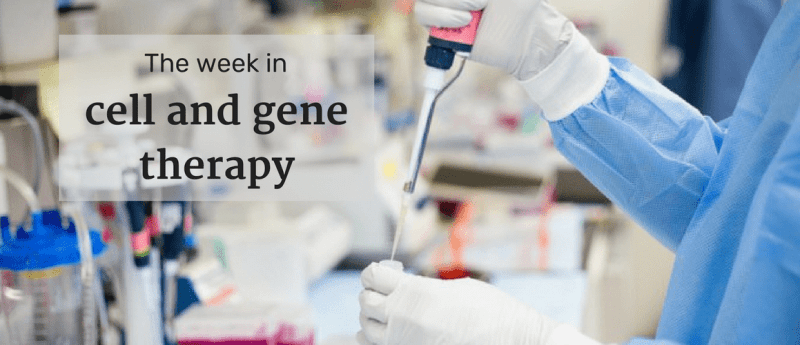Cell therapy weekly: Hematopoietic stem cells encouraged to expand by utilizing new protein

This week: New collaboration between Lonza and DiNAQOR to fight cardiomyopathies, and cell and gene therapy industry is booming according to new report.
The news highlights:
Hematopoietic stem cells encouraged to expand by utilizing new protein
Gene therapy collaboration between Lonza and DiNAQOR AG to combat cardiomyopathies
Cell and gene therapy industry supports over 3000 UK jobs and is expected to double by 2024
Hematopoietic stem cells encouraged to expand by utilizing new protein
Researchers from the University of California Los Angeles (CA, USA) have identified a protein that causes hematopoietic stem cell expansion when activated. The study, published in Nature, identified MLLT3 as a gene that was deactivated during differentiation. Seeking to maintain MLLT3 activity during in vitro growth, the researchers utilized a viral vector and small molecules. Researchers claim that the resultant stem cells self-renewed at a safe rate and could engraft into mice, potentially revealing an avenue for clinical hematopoietic stem cell expansion in the future.
“The previous discoveries with the small molecules are very important, and we’re building on them,” explained Vincenzo Calvanese (University of California Los Angeles). “Our method, which exposes blood stem cells to the small molecules and also inserts an active MLLT3 gene, created blood stem cells that integrated well into mouse bone marrow, efficiently produced all blood cell types and maintained their self-renewing ability.”
Gene therapy collaboration between Lonza and DiNAQOR AG to combat cardiomyopathies
Lonza (Basel, Switzerland) and DiNAQOR (Pfäffikon, Switzerland) have announced a new collaboration to advance the preclinical and commercial production of DiNAQOR’s lead product, DiNA-001. DiNA-001 is a new adeno-associated virus-based gene therapy designed to target MYBPC3-linked cardiomyopathies. The new collaboration will allow DiNAQOR to utilize Lonza’s state-of-the-art manufacturing facilities and dedicated research teams.
“DiNAQOR has established an innovative gene therapy platform that will allow for the evaluation of this promising treatment for monogenic cardiomyopathies. DiNAQOR represents the truly trailblazing companies that we strive to empower in the cell and gene therapy space, and we are fully committed to the DiNAQOR team as they seek to advance novel treatment options for people living with heart disease,” explained Alberto Santagostino (Lonza).
Cell and gene therapy industry supports over 3000 UK jobs and is expected to double by 2024
The latest ‘UK cell and gene therapy skills demand report’ has been published by the Cell and Gene Therapy Catapult (London, UK) and reveals that the UK industry has grown to support 3000 jobs, up from the 500 jobs supported in 2012. The report also highlights that the industry is expected to increase to 6000 jobs by 2024 predicting a large demand for expertise.
“Thanks to the continuous support from Innovate UK and UK Research and Innovation, we have been able to accelerate the growth of the UK ecosystem, the infrastructures and the systems that can enable companies to grow and for their therapies to reach patients. To keep growing, the industry will need many more skilled people and the expansion of programs such as the ATAC are an essential part of this,” commented Keith Thompson (Cell and Gene Therapy Catapult).
For more weekly cell therapy news, read previous editions of the cell therapy weekly.
Have any additional questions about this story? Ask us in the comments, below.
Find out more in these top picks from the Editor:
- Addressing the challenges of cell and gene therapy manufacturing in process development: an interview with Behnam Ahmadian Baghbaderani
- Industry updates with Dusko Ilic: July 2019
- Cell culture media: ask the experts